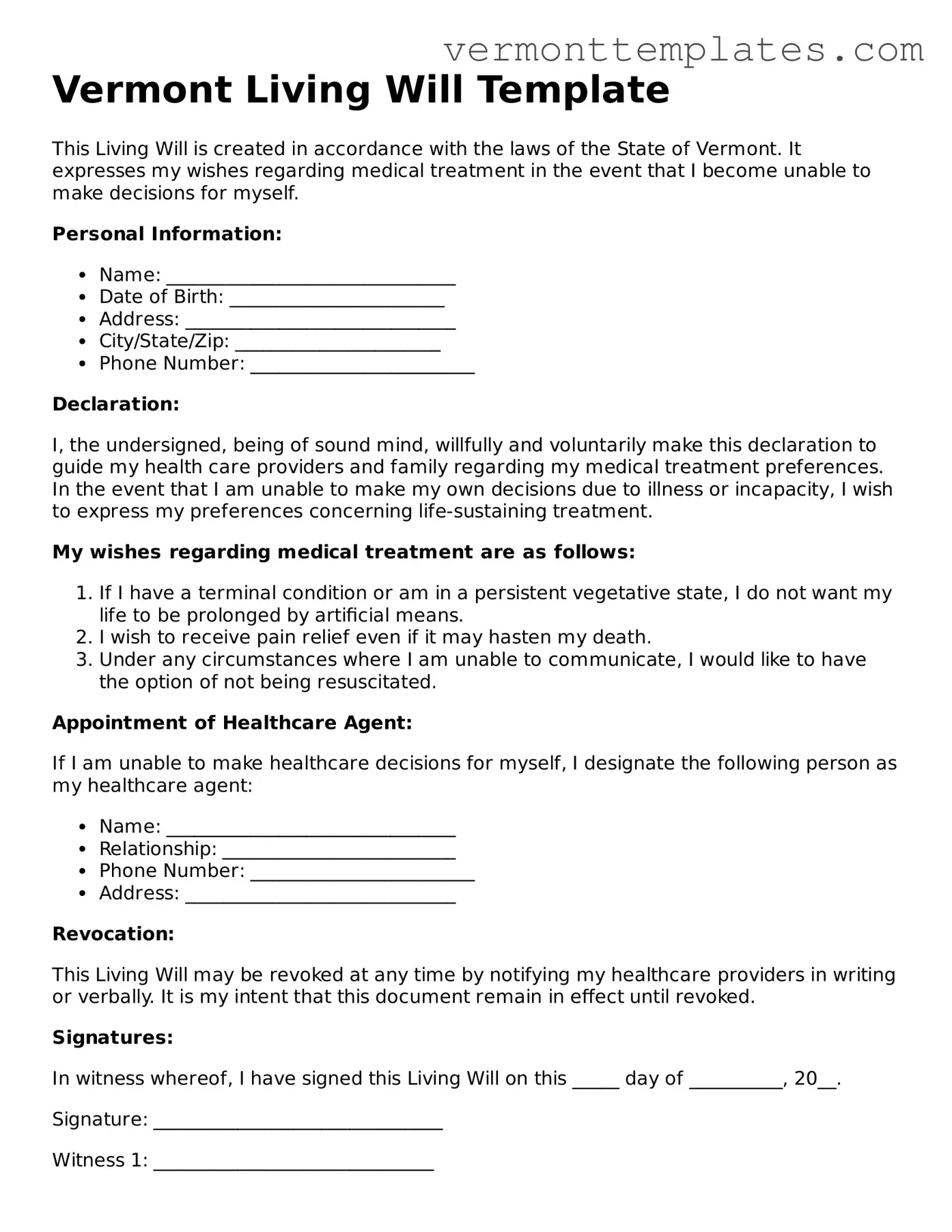Legal Living Will Template for Vermont
A Vermont Living Will form is a legal document that allows individuals to express their wishes regarding medical treatment in the event they become unable to communicate those preferences. This important tool helps ensure that a person's healthcare decisions align with their values and desires. By completing a Living Will, individuals can provide clear guidance to their loved ones and medical professionals during critical times.
Open Living Will Editor

Legal Living Will Template for Vermont
Open Living Will Editor
Complete the form at top speed
Edit, save, and download Living Will online with ease.
Open Living Will Editor
or
⇩ Living Will PDF Form
